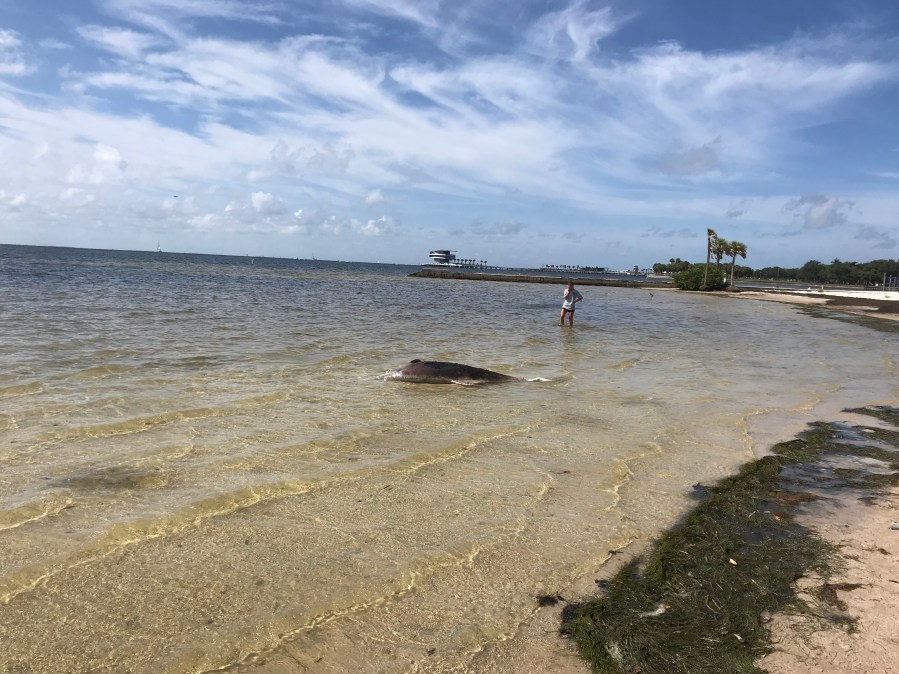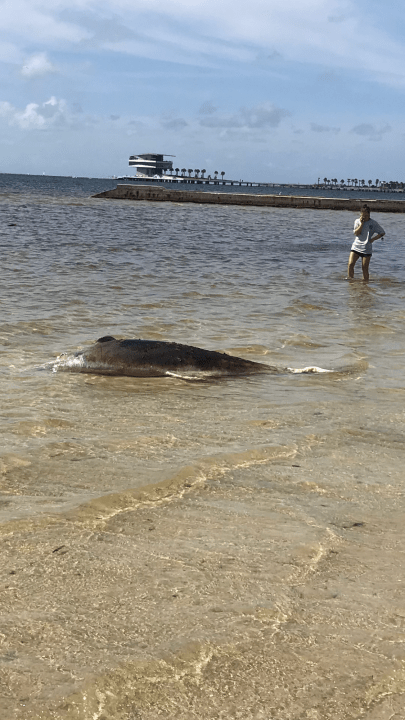ST. PETERSBURG, Fla. (WFLA) — David Gunter was taking his daily stroll through North Shore Park Sunday morning when he found something he said he was never prepared for.
Gunter said he found a dead dolphin washed ashore on Vinoy Beach. He snapped a picture of the animal and says tears began to flow.
“I just said a prayer and shed several tears,” Gunter said. “Everyone was very solemn. It was just very hurtful.”
Now he wants to know if red tide played a cause in the dolphins’ death.
8 On Your Side reached out to Florida Fish and Wildlife, who said they’re working to find that out.
FWC tells 8 On Your Side the dolphin carcass is currently at FWC’s Marine Mammal Pathobiology Laboratory in south St. Petersburg.
No one from FWC was available to speak on-camera, but they sent us this statement:
Sunday, June 27th at approximately 8:30 a.m., the Florida Fish and Wildlife conservation commission (FWC) received a report of a deceased beached dolphin located near Beach Dr. NE and 11th Ave. NE in St. Petersburg. An FWC biologist responded to the scene and collected the deceased dolphin for examination. At this time we cannot provide the dolphin’s cause of death.
Florida Fish and Wildlife
They said those tests are still underway to figure out the cause of death.
According to the National Oceanic and Atmospheric Administration, red tide can affect the central nervous system of fish and other vertebrates, such as dolphins, manatees, and birds, causing the animals to become sick and die.
Gunter said if red tide is the culprit, more taxpayer dollars should be poured into the water and saving sea life.
“It’s heartbreaking, it’s just heartbreaking,” Gunter said about the situation as he continued pointing to the water “I mean that’s beautiful. That’s a gift. Those animals out there, they’re a gift.”
According to FWC the dolphin’s body is badly decomposed, it may not be possible to find out the dolphin’s cause of death.
8 on your side asked FWC how many dolphin exams they’ve done this year and how many died from red tide? They referred us to NOAA for answers, who said they don’t have those updated numbers and the information is not part of the required reported data.
Gunter said he thinks something’s fishy. “I’m questioning the truth, we can’t get the truth,” Gunter said.
Dead marine mammals can be reported directly to FWC’s Dispatch at 888-404-3922, extension #7.








